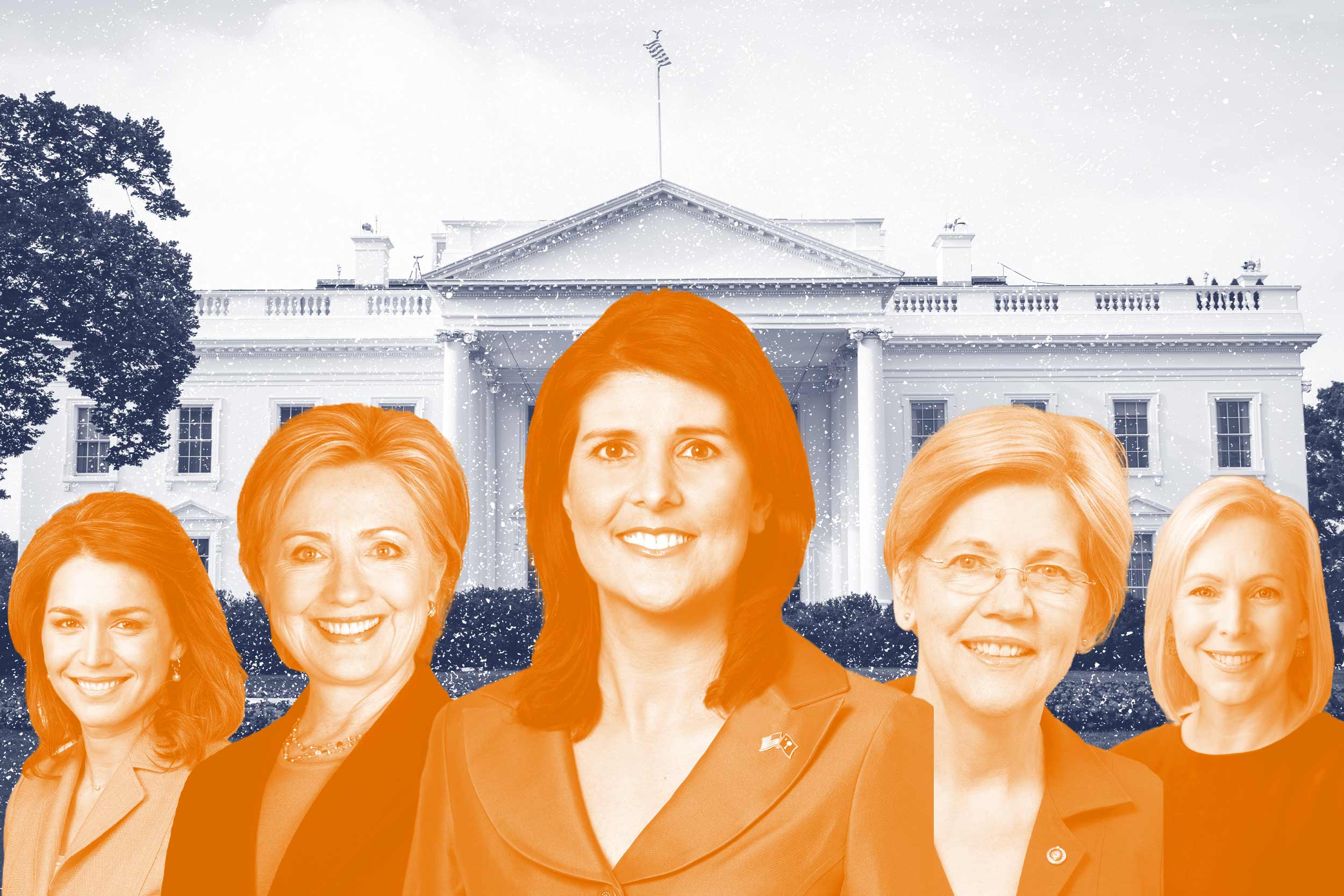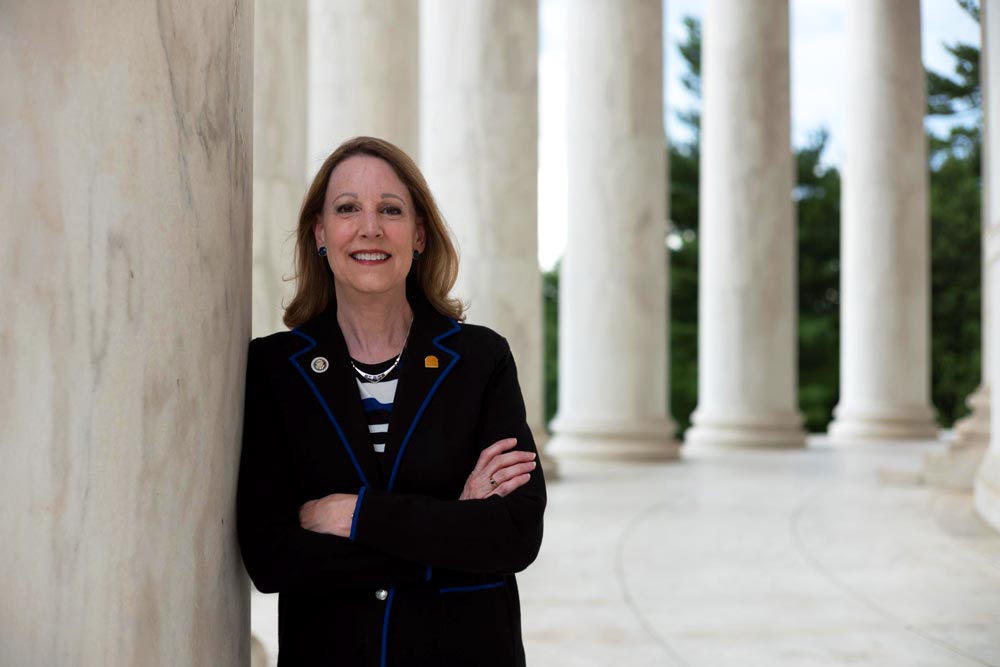Haley won the Republican primary in Vermont on Tuesday. She also won the Washington, D.C., primary on Sunday, but those were the lone wins in a campaign in which former president Donald Trump handily defeated her in almost every other contest.
After Tuesday’s primaries, Trump has amassed 995 of 1,215 delegates needed to win the Republican nomination. Haley secured 89 delegates during her unsuccessful run.
“The time has now come to suspend my campaign. I said I wanted Americans to have their voices heard. I have done that. I have no regrets,” Haley said.
Had Haley’s effort been a success, she would have become the second woman to be a major-party nominee for president, following former Democratic presidential candidate Hillary Clinton’s run in 2016.
Three women have run as vice presidential candidates in the U.S.: Democrat Geraldine Ferraro in 1984, Republican Sara Palin in 2008 and Democrat Kamala Harris in 2020. Harris is the first woman and first woman of color to serve as vice president.
While the road to the presidency is long and winding for a female candidate, University of Virginia political experts say that doesn’t mean it’s a dead end.
Lawless says cultural resistance to a woman in the White House has ebbed in the past decades as more women won local and state elections as well as seats in Congress.
“In 2020, when we had several women running on the Democratic side of the aisle; we also had a former vice president seeking the nomination (Joe Biden), and we had Bernie Sanders, who had been the runner-up, basically, the previous election cycle. So, there’s this general sense that there were all these well-qualified women who couldn’t make it,” Lawless said. “But there were also lots of really well-qualified men who didn’t make it either, people like Cory Booker and Julián Castro and Pete Buttigieg.”
For some, 2016 seemed like the right time. But Clinton, who had served in the Senate and as U.S. secretary of state, lost the Electoral College vote to Trump despite winning the popular vote by nearly 3 million ballots.
In 2020, Harris was joined on the campaign circuit for the Democratic nomination by five other female candidates: Marianne Williamson, who dropped out of the race before the primary elections, and Tulsi Gabbard, Amy Klobuchar and Elizabeth Warren, who withdrew to support eventual nominee Joe Biden.
While public opinion surveys have shown an increased willingness of Americans to vote for a woman for president, that willingness is more widespread among Democrats than Republicans.
The winner-take-all system in U.S. elections also limits a candidate’s chance to lead. In other countries with parliamentary systems in which party leaders from the legislative branch run the government, women have served as prime ministers.
“If we had a parliamentary system, Nancy Pelosi might have been prime minister, because she clearly could be a leader of her party,” said Barbara A. Perry, Gerald L. Baliles Professor and director of presidential studies at UVA’s Miller Center of Public Affairs.
Surveys conducted in the U.S. since the 1970s show an increase in support for a generic female presidential candidate. Perry said similar polls taken in the 1950s showed only 52% of the population would support a female presidential candidate. In the late 1980s, that support rose to 75% and has since increased to more than 90%.
But in those surveys, respondents also said they don’t believe their neighbors would be likely to support a woman for president.
Perception is important in politics and Perry said it’s difficult for women to project the sort of image the public expects from its leaders. Presidential images are often related to military strength or service, such Gen. Ulysses S. Grant, Gen. Dwight D. Eisenhower, John F. Kennedy and George H.W. Bush. Others use the image of personal strength or strong business acumen.
“I point to Indira Gandhi and Golda Meier who were, I’d say, in the same ‘Iron Lady’ persona model as Margaret Thatcher,” Perry said. “But I’m not sure that ‘Iron Lady’ image works in the United States, because when Hillary was tough, people didn’t like her.”
Although the time was not right in 2016, 2020 or even 2024, that doesn’t mean the right time and right candidate won’t come together, the experts say.
“I think the reason people tend to think that it’s worse for women right now is because there have been, consistently since 2000, women running every cycle. Elizabeth Dole ran in 2000. Carol Moseley Braun ran in 2004. Hillary Clinton ran in 2008, Michelle Bachman in 2012, Carly Fiorina and Hillary Clinton in 2016 and a bunch of women in 2020,” Lawless said. “I don’t think they’re losing these nomination contests because they are women. They’re losing because they’re running against incumbent presidents or an incumbent vice president. There just are not that many opportunities to become president of the United States.”
“It will happen someday. I don’t see it happening quickly unless, heaven forbid, a president with a female vice president dies in office or is asked to leave,” Perry said. “Women need to find a persona that meets what people want in a president. We don’t have a model for that, yet, because no woman has ever been president.”


.jpg)









